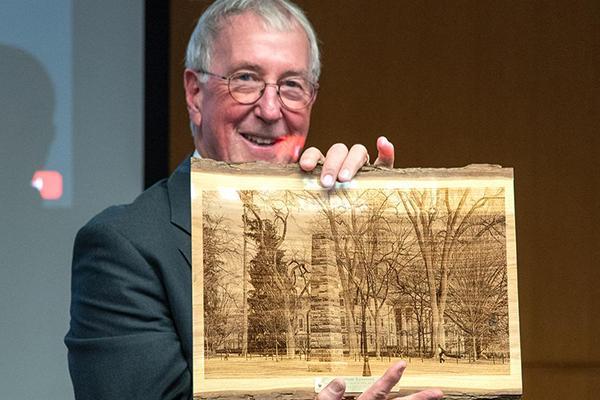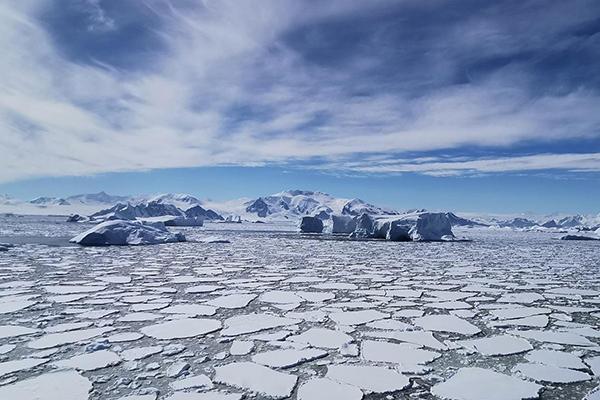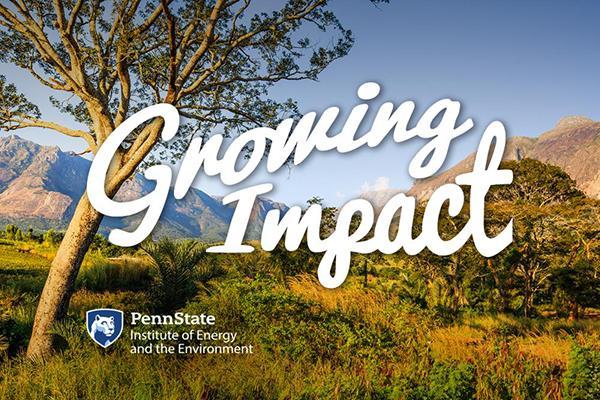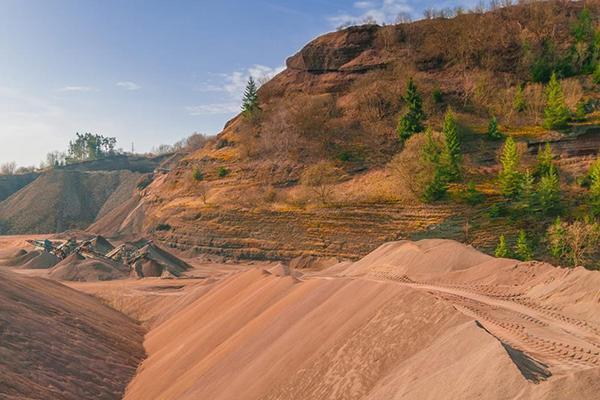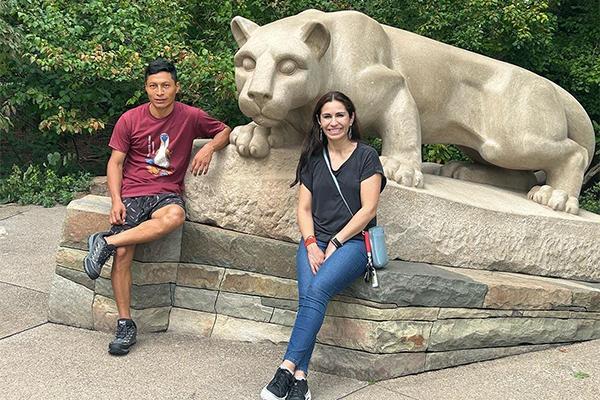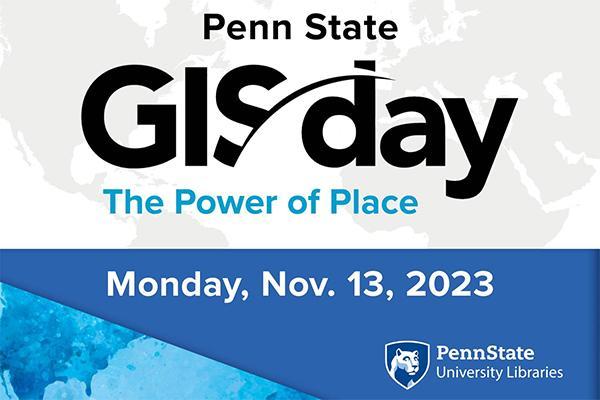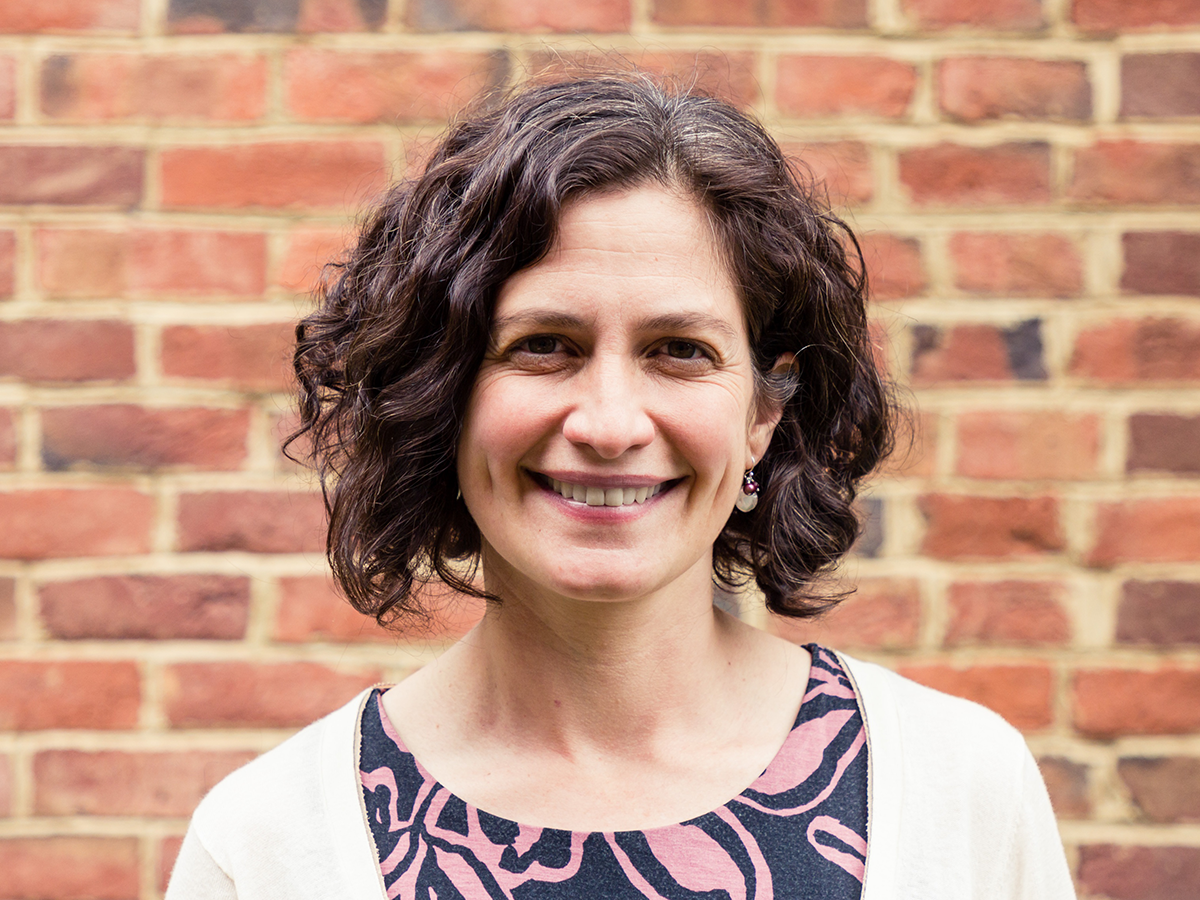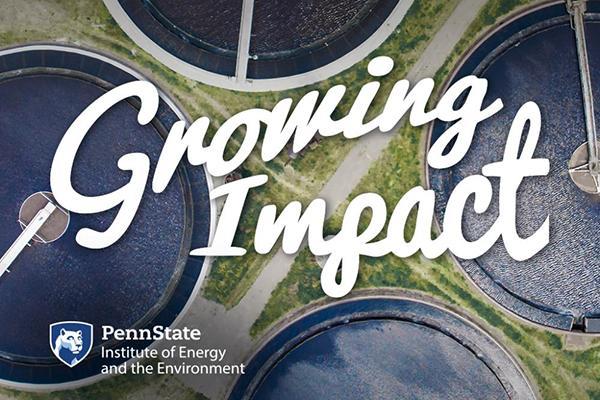Penn State's College of Earth and Mineral Sciences and the Department of Geography recently hosted a celebration to honor William Easterling’s legacy of leadership to the University. More than 100 faculty, staff, and former colleagues and students gathered on Nov. 9 at the Penn Stater Hotel and Conference Center to pay tribute to his extraordinary career and accomplishments.
As the world continues to warm, Antarctica is losing ice at an increasing pace, but the loss of sea ice may lead to more snowfall over the ice sheets, partially offsetting contributions to sea level rise, according to Penn State scientists.
A newly proposed landscape stewardship framework may lead to a more resilient and adaptable environment and improved quality of life for people.
The latest episode of "Growing Impact" discusses landscape restoration as a potential natural climate solution for Africa with researchers including Ida Djenontin.
Janet Adomako, assistant professor of geography, and environmental studies and sciences at Bucknell University, will discuss "Complex ontologies and gendered health vulnerabilities in Ghana’s small-scale gold mining industry" at the next Coffee Hour lecture.
Geovanni Siquihua will present "Oil extraction and Kichwa indigenous futurities in the Amazon rainforest: The experience of the Sani community" at the Coffee Hour lecture series on Friday, Nov. 3.
Penn State University Libraries will observe GIS Day — an annual event celebrating the technology of geographic information systems (GIS) — with events on Nov. 13.
Meet Mahda Bagher, a 2022 doctoral graduate, whose journey has propelled her to the forefront of groundbreaking research in the realms of virtual reality (VR) and human-computer interaction (HCI).
Elizabeth Olson, professor of geography and environment and professor of global studies at the University of North Carolina at Chapel Hill, will present "Theorizing Ableism and Care Through the Everyday Geographies of Caregiving Youth," at the Department of Geography's Coffee Hour lecture series.
Kimberly Van Meter in an episode of "Growing Impact" that explores how wastewater treatment plants could use solar power to improve their environmental performance, their communities and their finances.


